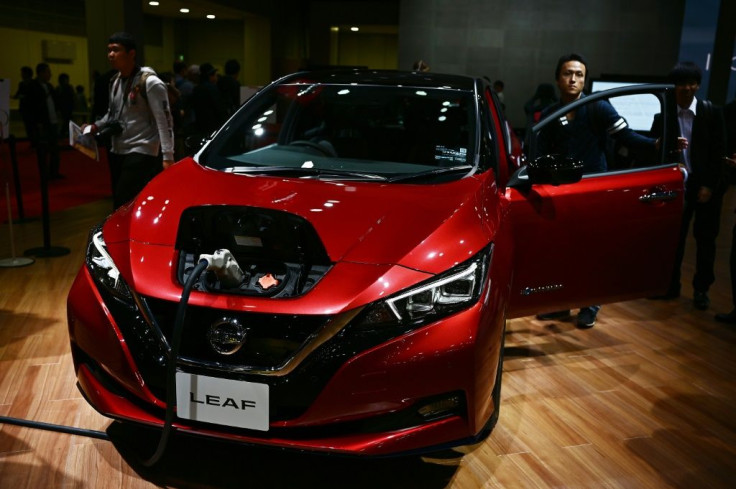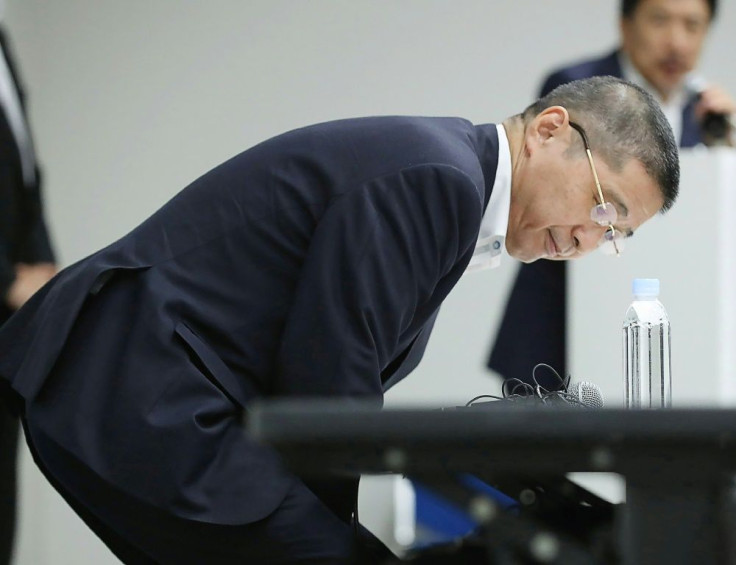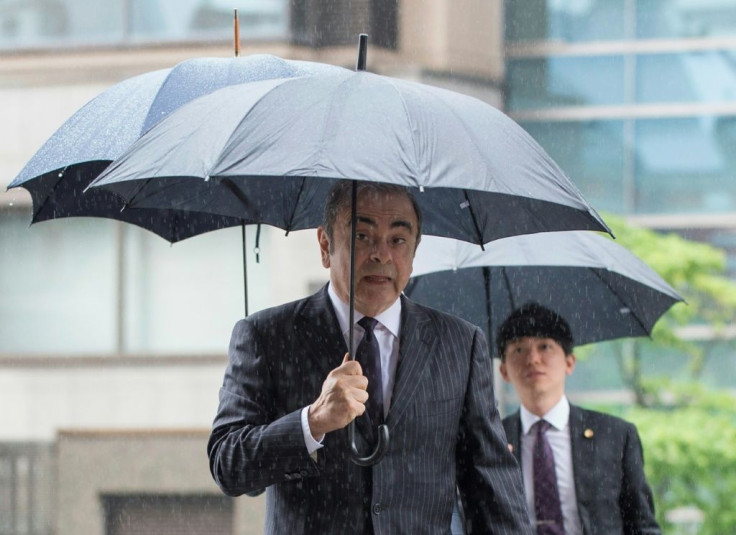Crisis-hit Nissan Chops Forecasts, Net Profit Worst For A Decade

Crisis-hit Japanese automaker Nissan Tuesday slashed its full-year forecast for both sales and profit as it struggles with weak demand in Japan, the US and Europe, as well as fallout from the arrest of former boss Carlos Ghosn.
Nissan downgraded its net profit forecast to 110 billion yen ($1 billion) for the fiscal year to March 2020, compared with an earlier estimate of 170 billion yen.
Full-year sales are now estimated at 10.6 trillion yen, down from a previous forecast of 11.3 trillion yen.
Nissan blamed the poor outlook on weak first-half earnings, a strong yen, an uncertain global outlook and the stagnation of the car industry in general.
Incoming chief financial officer Stephen Ma said: "Sales in China outpaced the market but sales in other key regions including the US, Europe and Japan underperformed in those markets. This resulted in the overall decrease of our market share."
Net profit for the six months to September plunged 73.5 percent to 65.4 billion yen, the worst first-half result since the global financial crisis a decade ago.
"Nissan is in a very severe situation at a time when competition in the global auto market is further intensifying," said Satoru Takada, auto analyst at TIW, a Tokyo-based research and consulting firm.
It was Nissan's first earnings announcement since the appointment last month of Makoto Uchida as new chief executive, elevating the insider heading the firm's China unit as it overhauls its leadership after the Ghosn scandal.
Uchida's appointment, to take effect on December 1, came after months of turmoil for the automaker in the wake of the arrest of former chief Ghosn on allegations of financial misconduct.

Former CEO Hiroto Saikawa resigned in September after an investigation prompted by the Ghosn scandal revealed he was among Nissan executives who received excess pay by altering the terms of a share price bonus.
"Nissan's new management is setting sail in a storm," Takada told AFP.
"Uchida is expected to show new strategies for Nissan's survival," he said.

The automaker has cited a global slowdown in the auto sector, but it is also suffering from a lack of innovation on its production line and reputational damage from the Ghosn scandal.
Uchida inherits the harsh cost-cutting measures Saikawa proposed as a way out of the crisis -- including reducing dealer incentives and promotions but also cutting global production by 10 percent to 2023 -- a measure that means the loss of 12,500 jobs.
"Additional restructuring is possible in the wake of the layoff plan," Takada said.
Asked about possible fresh job losses, Nissan official Ma said no new announcement would be made until the full new management team is in place on December 1.
The company is "very urgently working" to improve sales and profitability, Ma said.
Nissan separately said it would hold a shareholder meeting next February to put forward a plan to appoint new directors.
Adding to Nissan's woes is continued tension within the three-way alliance with Mitsubishi Motors and Renault.
Ghosn, who created the alliance, wanted greater integration with France's Renault, and says his push for that prompted angry Nissan executives to plot against him.
The two firms have made a show of holding the marriage together in the wake of Ghosn's arrest, but tensions have bubbled to the surface.
Renault holds a 43 percent stake in the Japanese automaker, which in turn controls 15 percent of the French firm but has no voting rights.
"The negative impact of the furore around Ghosn is gradually becoming visible," Takada said. "The alliance is facing a crucial stage," he added.
Ghosn is out on bail in Tokyo, awaiting a trial that reports have suggested could start in April on charges of under-reporting millions of dollars in salary and using company funds for personal expenses.
He denies any wrongdoing.
bur-si/gle
© Copyright AFP 2024. All rights reserved.





















